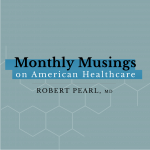I was honored to join the annual Lifestyle Medicine Summit (Oct. 21-30, 2022), a 10-day event that brings together experts in public health, wellness coaching, lifestyle improvement and value-based care. I was invited to speak by summit host Johannes R. Fisslinger about two topics close to my heart. After my presentation, and the one delivered by my friend and mindfulness leader Dr. Jonathan Fisher, we joined forces for a Q&A panel with event participants.
I encourage everyone to visit the Lifestyle Medicine Summit channel on YouTube, where you can view content from throughout this week’s event. In the meantime, I’d like to tell you more about my talk.
It’s no secret: The United States suffers from multiple healthcare crises.
One is physician burnout, with its symptoms of fatigue, frustration and dissatisfaction affecting nearly 70% of doctors according to a new Mayo Clinic survey. Another is the American way of life, which is increasingly filled with stress, inactivity, isolation and mental health disorders. These lifestyle challenges often lead to unhealthy behaviors (smoking, drinking, drug use, etc.) and produce frequent complications from chronic disease (heart attacks, strokes, cancer).
At the Lifestyle Medicine Summit, I addressed both of these issues and pointed out that our nation’s current approach to each is dangerously insufficient.
Consider physician burnout, which has been a topic of serious concern and attention for nearly a decade. If you attend any of the conferences on this subject, you’ll find dozens of speakers and vendors touting opportunities to reduce the doctor’s distress. You’ll learn about programs that teach resiliency. You’ll hear about the importance of exercise, meditation and mindfulness as ways to combat the daily stresses of care delivery.
As a proponent of exercise, proper nutrition and wellness, I encourage doctors to pursue these tactics. And yet, surveys continue to show physician burnout increasing, not decreasing, in prevalence and severity.
It’s not that these programs don’t add value. It’s that they are “point solutions,” approaches that offer narrow improvements but fail to address the underlying causes. And because nobody is addressing the big, thorny, systemic issues, the physical health of Americans and the mental health of doctors are getting progressively worse.
Fundamental to both physician burnout and the failure to appreciate the importance of wellness and lifestyle medicine is our nation’s outdated and perverse fee-for-service payment system.
When physicians are reimbursed on a fee-for-service basis, the only way they can earn additional income is by doing more (more tests, more treatments, more of everything). And so, they see more patients a day, spent less time with each, skip over the health aspects that aren’t well-compensated, and go home feeling tired and unfulfilled.
Meaningful improvement in both patient health and physician satisfaction requires a shift away from fee-for-service toward a capitated reimbursement model, one that pays physicians and medical groups a fixed, up-front sum to provide all the care needed for a defined population of patients. Under this reimbursement model, doctors do best when they help patients avoid heart attacks, strokes, cancer and medical errors. They emphasize preventive medicine, rather than treating these complications once they arise. This also happens to be what’s best for patients, as well.
Standing in the way of capitation is a physician culture that shies away from risk, something that’s embedded in a capitated arrangement. The culture of medicine values intervention over prevention and elevates the importance of the individual over the achievements of the group. It fails to embrace lifestyle opportunities. It is a culture aligned with the needs of the last century, not the current one that demands greater collaboration and cooperation to maximally help patients with chronic disease.
I closed my comments by encouraging all of the thousands of attendees to lead the way and embrace the opportunities that capitation creates to make their medical practices more fulfilling and patient’s lives healthier and better.
During the Q&A portion of the summit, we discussed loneliness as a lifestyle-related health issue of increasing importance. Many public health experts have grown progressively more concerned about this epidemic. In fact, the U.S. Surgeon General has said the reduction in life span caused by loneliness is similar to that caused by smoking 15 cigarettes a day.
Like their patients, doctors feel lonely, too. Many are suffering from a lack of meaningful contact with their colleagues. Rather than consulting face-to-face with physicians in other specialties, most collegial interactions take place by phone or email. Rather than bumping into dozens of fellow physicians during morning rounds at the hospital, most of today’s primary care physicians drive straight to their offices.
In a capitated system, doctors have financial incentives to communicate frequently with their colleagues and work together on solving patient problems.
We won’t solve the many crises facing healthcare unless we can transition away from a payment methodology that rewards volume toward one that rewards doctors adequately when they prevent, not just reverse, disease. And the best route to that destination is through capitation.
Doctors are victims of a broken economy and healthcare system. But they are not powerless. If as a profession we want to address burnout and the declining health of patients, clinicians need to step up and lead the change. How they can accomplish this is a topic I am addressing in my current Forbes and LinkedIn columns, which can be accessed via the links below.
Sign up for my free monthly newsletter
* * *
Dr. Robert Pearl is the former CEO of The Permanente Medical Group, the nation’s largest physician group. He’s a Forbes contributor, bestselling author, Stanford University professor, and host of two healthcare podcasts. Pearl’s newest book, “Uncaring: How the Culture of Medicine Kills Doctors & Patients,” is available now. All profits from the book go to Doctors Without Borders.






